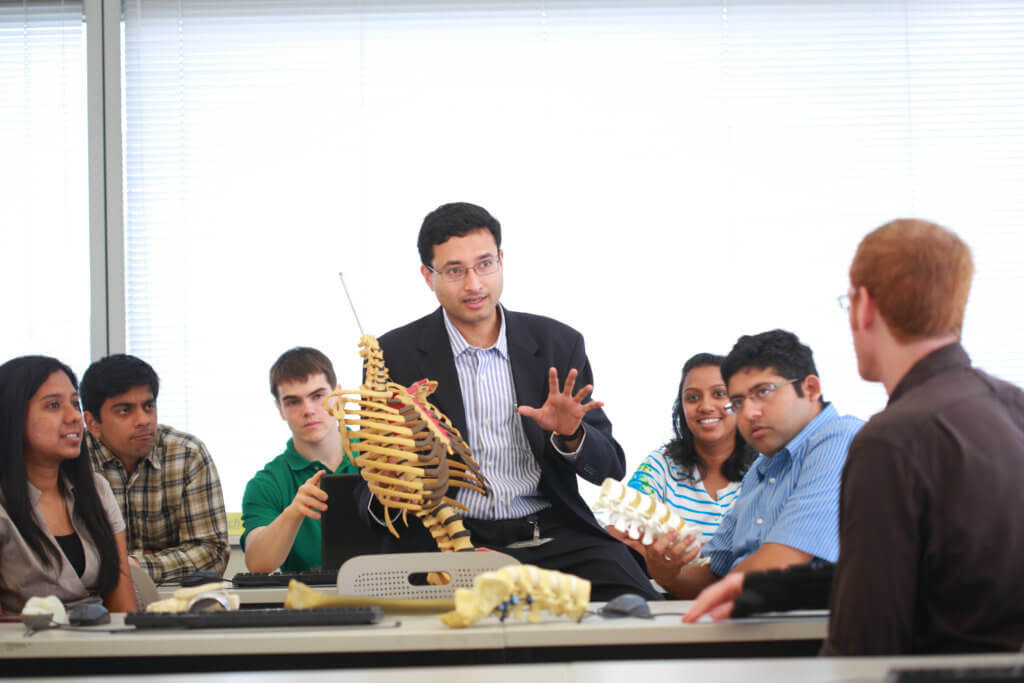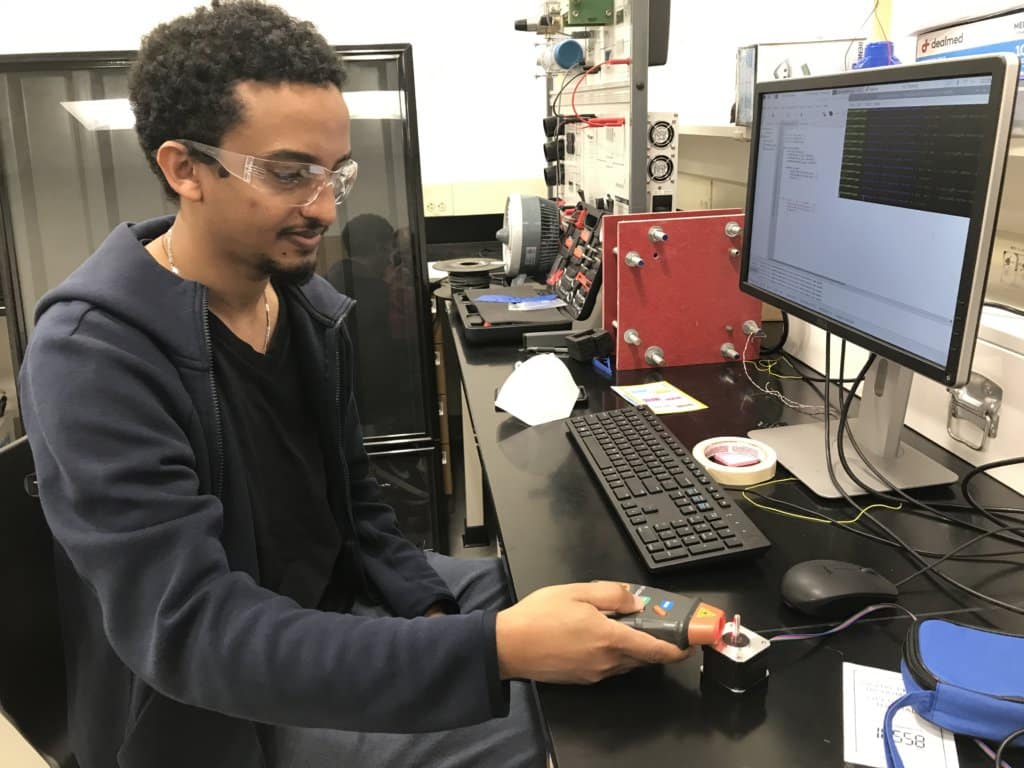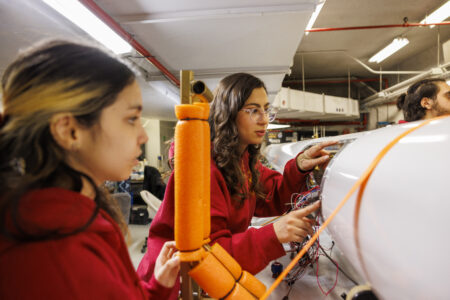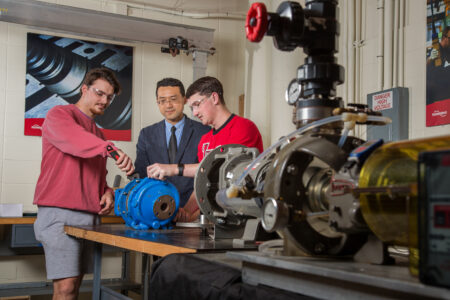
It’s no secret that engineers are valuable to society, hence why engineering degrees remain a popular choice today. A study by Bankrate confirms this – out of 152 degrees, engineering degrees claimed the eighth spot. There are several reasons for this, one of which is earning potential — engineers in the US earn between US$119,000 to US$207,000 per year.
The demand is growing, too. The US Bureau of Labour Statistics reports that engineering occupations are expected to grow faster than the average for all occupations from 2023 to 2033, with 195,000 job openings each year, making now the perfect time to pursue a degree in this dynamic field.
But success starts with the right education. Here are four leading US universities shaping the future of engineering:
Duke University Pratt School of Engineering
The highest honour an engineer in the US can receive is becoming a member of the National Academy of Engineering. More than 30 of Duke University’s Pratt School of Engineering alumni and faculty have been elected since its founding in 1924. This milestone reflects Duke’s founding vision: to use education as a means to advance society. That vision continues today – Duke Engineering prepares students for rewarding careers across its four top-ranked departments and more than 20 master’s programmes.
The Biomedical Engineering Department develops life-saving technologies that address critical medical needs. Civil & Environmental Engineering, ranked ninth for environmental engineering graduate studies, promotes data-driven solutions to solve global environmental challenges. Electrical & Computer Engineering, ranked #20 among graduate programmes, leads the world in fields such as quantum computing and semiconductors. Meanwhile, Mechanical Engineering & Materials Science drives innovation in robotics, autonomy, and AI, with 83% of its undergraduate students securing job offers upon graduation.
Beyond technical knowledge, Duke Engineering fosters interdisciplinary learning; master’s students can broaden their expertise by collaborating with Duke’s business, law, and medical schools. The Institute for Enterprise Engineering offers industry-aligned master’s degrees in areas like AI, Financial Technology, Engineering Management, and more, equipping students with the leadership and business skills to rise to the top at world-leading engineering and technology companies.
Duke’s the perfect place for aspiring researchers too. It ranks #12 in research funding (per faculty member) and is home to state-of-the-art research centres, where students can engage in high-impact research that shapes the future. Participation has fuelled remarkable growth, including a 112% increase in graduate enrolment and 60% of undergraduates conducting faculty-sponsored research. Hence, 91% of bachelor’s graduates step into careers at firms like Amazon, McKinsey & Company, NVIDIA, and Goldman Sachs. Join tomorrow’s innovators at Duke Engineering.

Northeastern helps you build the skills you need to thrive after graduation with real-world learning. Source: Northeastern University College of Engineering
Northeastern University College of Engineering
Interdisciplinary issues, such as climate change and healthcare, need interdisciplinary solutions, which are discovered every day at Northeastern University’s College of Engineering. With over 65 programmes at the BS, MS, and PhD levels, plus a range of minors and graduate certificates, the college provides a comprehensive education across six core engineering disciplines: Bioengineering, Chemical Engineering, Civil and Environmental Engineering, Electrical and Computer Engineering, and Mechanical and Industrial Engineering. Multidisciplinary master’s programmes are available as well. They combine engineering and business knowledge to prepare you for careers in software, data, and network systems.
Outside of coursework, you get to join advanced materials, processes, systems, infrastructure, and technology research. As an R1 university, Northeastern fosters research excellence through 20 multidisciplinary centres and institutes, all backed by funding from eight federal agencies. You will learn from 240 faculty members who, outside of the university, work across engineering disciplines, as well as with government, academia, and industry. Ningfang Mi, associate professor of electrical and computer engineering, for example, is leading a US$999,969 National Science Foundation grant for the “AI4EDU: Cloud Infrastructure-Enabled Training for AI in Educational Research and Assessment” project.

Guided by expert faculty, Drexel engineering students apply research to real-life challenges and create solutions that make a difference. Source: Drexel University College of Engineering
Drexel University College of Engineering
Drexel University’s College of Engineering trains aspiring engineers to address pressing challenges in society, the environment, economics, and sustainability. With six departments — Chemical and Biological Engineering, Civil, Architectural and Environmental Engineering, Electrical and Computer Engineering, Engineering Leadership and Society, Materials Science and Engineering, and Mechanical Engineering and Mechanics — the college provides a well-rounded engineering education. Undergraduates can pick from bachelor’s degrees, minors, and BS/MS programmes, while postgraduates have master’s and doctoral degrees and certificate programmes.
Experiential learning is at the heart of every programme. “No other college offered me the ability to put myself in a real engineer’s shoes as much as Drexel,” says Rhythm Osan, a BS in Architectural Engineering and MS in Civil Engineering student. “Its co-op programme especially made it easier for me to network with professionals and start my career.”
Research is another cornerstone at Drexel Engineering. Undergraduates can take part in hands-on projects through the First-Year Design programme. PhD students, on the other hand, engage in intensive research in advanced manufacturing, cyber and physical infrastructure, systems engineering, and more.

SEAS students get to work in national labs, such as the Johnson Space Centre (Houston) and the Jet Propulsion Laboratory (Pasadena). Source: UDC School of Engineering & Applied Sciences
University of the District of Columbia (UDC) School of Engineering & Applied Sciences
Washington, DC, is known for its rich history and political influence, but it is also home to the University of the District of Columbia (UDC), the city’s only public university and a historically Black land-grant institution. With roots dating back to 1851, UDC’s six schools and colleges, including the School of Engineering and Applied Sciences (SEAS), have long been committed to academic excellence.
SEAS students can choose from four departments. Civil Engineering equips you with expertise in planning, designing, constructing, and maintaining the built environment. The Computer Science and Information Technology department fosters proficiency in both theoretical and applied computing through traditional, capstone, and research courses. Electrical and Computer Engineering prepares you to navigate technological advancements shaping the public and private sectors. Lastly, Mechanical Engineering offers a strong foundation for careers in biomedical engineering, renewable energy, nanotechnology, and the automobile industry.
All programmes have one aim: to develop creative leaders through hands-on learning and research. With US$34 million in research grants, you have access to eight national research centres, where you will work alongside faculty on cutting-edge projects. This rigorous training prepares you for success, with SEAS graduates securing jobs at Raytheon, Goldman Sachs, Intel Corporation, Boeing, Google, and more.
*Some of the institutions featured in this article are commercial partners of Study International










